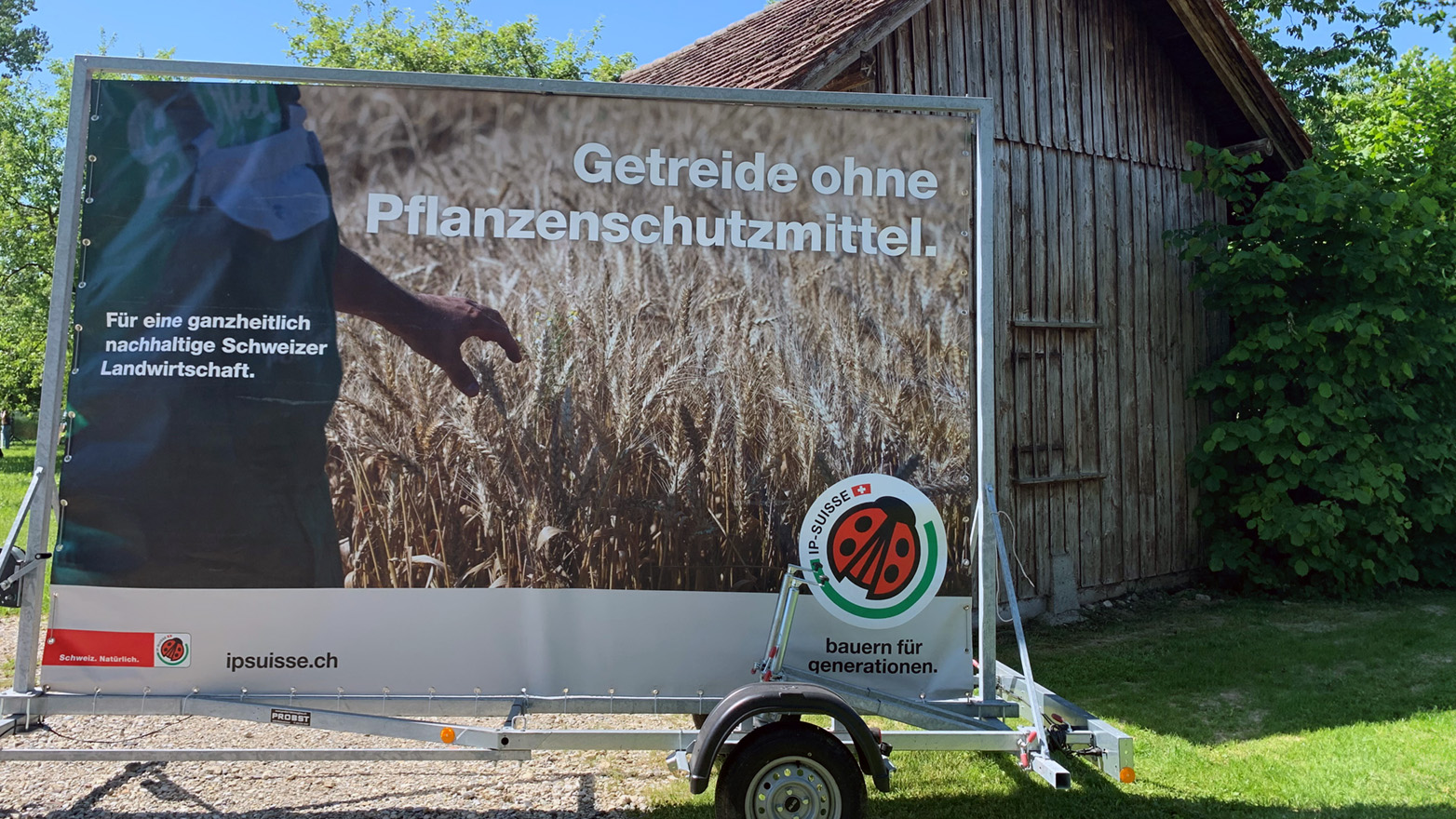
We can transition to pesticide-free agriculture without converting to organic farming. Robert Finger outlines the advantages and challenges involved.
A new approach is gaining momentum in European agriculture: a "third way" that lies between conventional production and organic farming systems. Here farmers must forego synthetic pesticides, but these only - which is simpler to implement than a switch to organic farming. At the same time, this move will achieve the ambitious targets that Switzerland and Europe have set themselves for more sustainable plant protection.1, 2 Pesticide use is associated with considerable risks for the environment, biodiversity and human health.3

Pesticide-free production systems offer farmers more flexibility than organic farming. For example, the newly emerging initiatives for pesticide-free production allow farmers to not use pesticides for certain crops on the farm, while continuing to use them for others. A complete shift to organic farming, on the other hand, presents daunting hurdles, as the entire farm has to be converted. What's more, an organic farm must forgo not just synthetic pesticides, but also mineral fertilisers, among other things, and this results in lower yields.
"These schemes enable farmers to send a clear 'no pesticides' message to consumers and policy makers."Robert Finger
In the last few years, public and private initiatives have made a concerted effort to establish pesticide-free production systems in Europe. Since 2023, agri-environmental programmes in Switzerland and Germany, for instance, have compensated farmers who forgo synthetic pesticides. Swiss farmers now receive direct payments from the federal government of between CHF 650 (e.g. cereals) and CHF 1,400 (e.g. rapeseed) per hectare for growing crops without pesticides.
Under the "Pesticide-free" production program launched in 2019 by producers' organisation IP Suisse, farmers additionally receive a price premium of some 30 percent over conventional grain for bread grain grown without pesticides.4 Similar initiatives are in place in Germany, and pesticide-free labels are emerging in Europe, such as the French "cultivé sans pesticides" for tomatoes.5 These schemes enable farmers to communicate the value of their product and send a clear 'no pesticides' message to consumers and policy makers alike.
Combining approaches
In our new study 6, we examined the various European programmes and initiatives. We found that farmers substitute pesticides with a range of pest management practices: for example, they choose resistant crop varieties, control weeds by mechanical means, and tailor crop rotations, i.e. select which crops are grown, and in which sequence. Despite this, pesticide-free production generates lower yields than conventional production. But yields are higher than in organic farming - one reason being that mineral fertilisers can be used.
About the author
Robert Finger is Professor of Agricultural Economics and Policy and Chair of the World Food System Center at ETH Zurich.
Without encouragement and incentives, switching to pesticide-free production is often not economically viable. The price premiums and area-based payments offered by public and private initiatives, however, make conversion financially attractive for many farms. Surveys on Swiss farmers reveal that it's crucial they are not financially worse off by switching to pesticide-free production. Farmers also tend to perceive pesticide-free production as riskier, which may deter them from adopting new practices.
Gradual expansion
Given targeted support, pesticide-free production systems have potential to be implemented on a large scale and to complement existing cultivation systems. They offer farmers more flexibility when choosing site-appropriate production and can be extended step-by-step to other aspects of the crop rotation. In this way, a viable path between conventional and organic farming will be forged - one that creates added value for the environment and farmers.
However, a number of hurdles lie in the way of expanding pesticide-free production. So far, no standard definition exists as to what counts as pesticide-free production and what not - and this hampers coherent communication.5 In addition, the labelling of pesticide-free production poses logistical challenges, as all the transportation and processing steps must be separated. What's more, if ultimately a large proportion of the population is to be fed with pesticide-free produce, to what extent can price premiums and area payments be maintained in the long term? And finally, the loss of yield compared to conventional production must be reduced. Researchers must now join forces with farmers and industry to make approaches for replacing pesticides more effective, and to bring down their costs.
Robert Finger wrote this contribution together with external pageNiklas Möhring, Professor at the University of Bonn.
1 Finger R: Europe's ambitious pesticide policy and its impact on agriculture and food systems. Agricultural Economics 2024, doi: external page10.1111/agec.12817
2 Finger R: No pesticide-free Switzerland. Nature Plants 2021, 7: 1324, doi: external page10.1038/s41477-021-01009-6
3 Möhring N, Ingold K, Kudsk P, Martin-Laurent F, Niggli U, Siegrist M, Studer B, Walter A, Finger R: Pathways for advancing pesticide policies. Nature Food 2020, 1: 535, doi: external page10.1038/s43016-020-00141-4
4 Möhring N, Finger R: Pesticide-free but not organic: adoption of a large-scale wheat production standard in Switzerland. Food Policy 2022, 106: 102188, doi: external page10.1016/j.foodpol.2021.102188
5 Finger R: On the definition of pesticide-free crop production systems. Agricultural Systems 2024, 214: 103844, doi: external page10.1016/j.agsy.2023.103844
6 Finger R, Möhring N: The emergence of pesticide-free crop production systems in Europe. Nature Plants, 14 March 2024, doi: external page10.1038/s41477-024-01650-x






